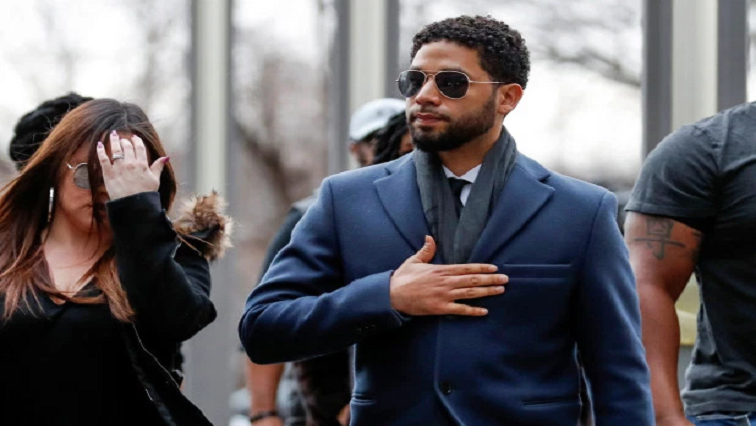The United States (US) has handed down two significant judgments, one in an alleged hate-crime case involving actor Jussie Smollett and another regarding former President Donald Trump’s efforts to block the Committee investigating the January 6th attack on the US Congress from accessing White House documents.
A Chicago Jury found Smollett guilty on five of six counts in relation to staging a hate crime in January 2019 in the same city and lying to police investigators about the incident.
This comes as a Federal Appeals Court Thursday rejected Trump’s claim of Executive Privilege in order to block a House of Representatives Committee from accessing White House records related to the attack on the Capitol.
Smollett – the one-time star of the TV drama “Empire” was found guilty of staging a hate crime against himself, including placing a noose around his neck in what prosecutors said was a bid to gain sympathy and boost his career.
He claimed he was attacked by two men because he was black and gay, garnering an outpouring of support.
“I told the jury that I thought the evidence was overwhelming, that in fact Smollett had faked a hate crime and then lied to the police about it, and then compounded his crimes by lying to the jury during the course of this trial and insulting their intelligence.
“That’s what I told the jury in my closing argument. With the resounding verdict, we just received from this jury after one day of deliberations in which they found Mr. Smollett guilty of virtually all charges of doing exactly what we said he did. Reporting a fake crime to the Chicago Police Department as a real crime. That verdict was a resounding message by the jury that, in fact, Mr. Smollett did exactly what we said he did.”
The case rested in large part on the testimony of Abimbola and Olabinjo Osundairo, brothers that carried out the attack but testified in court that they’d been paid $3 500 to stage the assault. Smollett, who pleaded not guilty, took the stand in his own defence accusing the brothers of lying – but the jury felt otherwise.
“This jury worked so hard and for Smollett to get up in front of them and lie for hours and hours and hours. That really compounded his misconduct. And quite frankly, when I saw that happen in the courtroom, at least for me as a trial lawyer that’s spent my life in the courtroom, we don’t expect defendants to do that.
Defendants have a right to go to trial. Defendants have a right to argue that their case has not been proven beyond a reasonable doubt. But defendants do not have the right to go in front of a jury and lie under oath. Mr. Smollett would not have lost this case, as he did today unless the jury found that he lied to them.”
He now faces between one and three years for each count but having no criminal record he will likely count in his favour.
“We’re obviously very disappointed. We obviously respectfully disagree with the jury’s verdict. The verdict is inconsistent. You cannot say Jussie’s lying and Jussie’s not lying for the same exact incidents.
So we feel 100 percent confident that this case will be won on appeal. Unfortunately, that’s not the route we wanted, but sometimes that’s the route that you have to take to win, especially a case where we remain 100 percent confident in our client’s innocence. From the first day of this case, his case has been prejudged. His case has been tried in the media and it’s unfortunate.”
US courts hand down judgments in Jussie Smollett and Donald Trump cases:
Court judgment on White House records
Also, the US Circuit Court for Appeals delivered a 68-page judgment rejecting former President Trump’s effort to stop Congressional investigators from obtaining White House records related to the January attack on Congress.
The three-judge panel referred to the urgent national interest in understanding events that led to the Capitol riot that directly threatened the peaceful transfer of power at a time when Congress was certifying Joe Biden’s victory in the November 2020 Presidential election.
The ruling said that the January 6, Committee demonstrated a sound factual predicate for requesting the documents and that there was a direct linkage between the former President and the events of that day.
The Court imposed a two-week stay on the release of the documents to allow time for Trump’s attorneys to lodge an appeal with the Supreme Court – likely the final arbiter on the matter.






